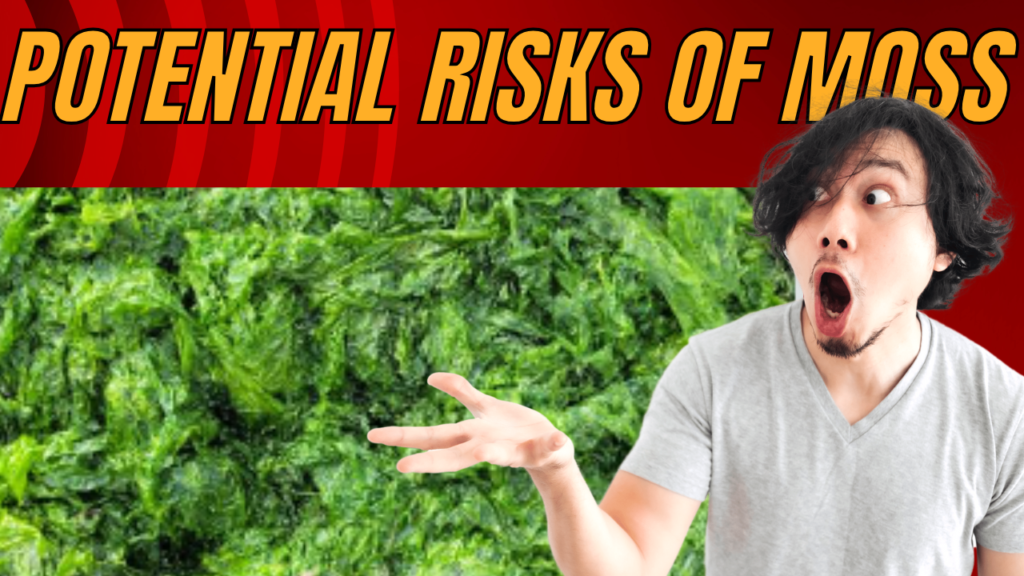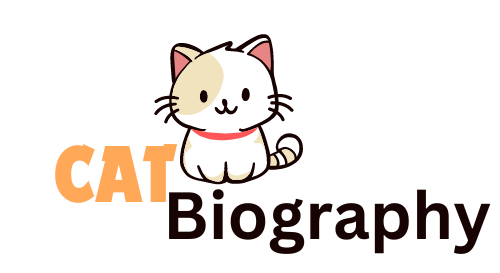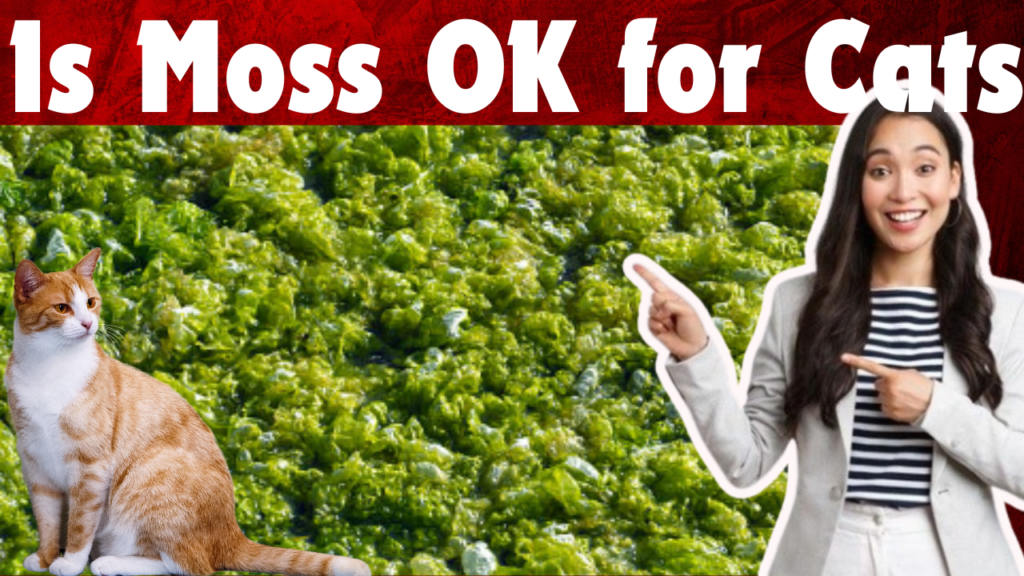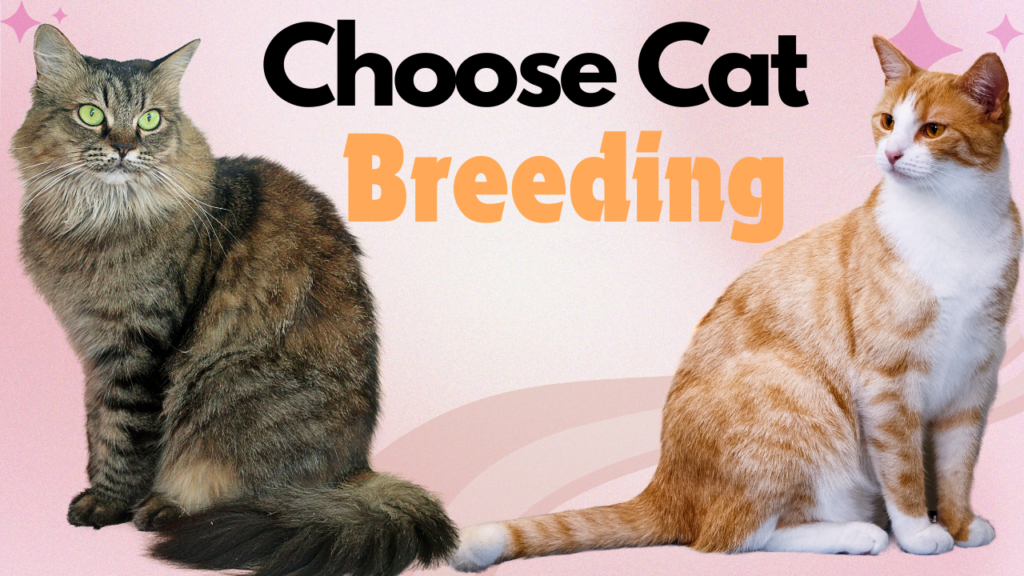As responsible pet owners, ensuring the safety of our cats is paramount, especially when it comes to their environment. Moss is a popular decorative feature in homes and gardens, but a common question arises: Is moss safe for cats?
In this article, we’ll explore the types of moss, their potential risks, and whether moss is okay for cats. We’ll also provide helpful tips on creating a safe, cat-friendly environment in your home or garden.
Understanding Different Types of Moss
There are various types of moss that you may encounter in your home or garden. It’s important to know the distinctions between them, as some may pose risks to cats.
1. True Mosses
True mosses belong to the Bryophyta family and are commonly found in damp, shaded areas. These mosses are often used for decorative purposes in gardens, terrariums, and even as part of indoor plants. The good news is that true mosses are generally safe for cats. They do not contain toxic compounds that could harm your feline friend if ingested.
However, it’s always wise to monitor your cat’s behavior around moss, as some cats may develop a habit of nibbling on non-food items, which could lead to digestive issues.
2. Reindeer Moss (Cladonia rangiferina)
Reindeer moss, which is technically a lichen, is frequently used in decorative displays and floral arrangements. While it is non-toxic to cats, consumption of large amounts could still cause gastrointestinal upset, such as vomiting or diarrhea, due to its fibrous nature.
3. Spanish Moss (Tillandsia usneoides)
Spanish moss, which is actually an air plant and not a true moss, is often used for decorative purposes in homes and gardens. Spanish moss is also non-toxic to cats, but as with reindeer moss, ingestion could lead to minor stomach upset. It’s always a good idea to prevent your cat from chewing on large amounts of any plant material, even if it’s not toxic.
4. Peat Moss (Sphagnum moss)
Peat moss is commonly used in gardening and horticulture for its water-retention properties. While peat moss is generally not toxic to cats, it can pose a risk if consumed in large quantities. Cats may experience digestive issues or blockages if they ingest too much peat moss, so it’s best to keep an eye on your cat if you use this material in your garden.
Potential Risks of Moss for Cats
While most types of moss are non-toxic, there are still a few potential risks associated with having moss around cats. These risks are not necessarily related to the toxicity of the moss itself but rather to other factors that could affect your cat’s health.
1. Moss-Related Ingestions
Though moss is generally safe, cats may develop pica, a condition where they chew on or eat non-food items. If a cat ingests large amounts of moss or other plant materials, this can lead to gastrointestinal problems, such as vomiting, diarrhea, or even blockages. Always observe your cat’s behavior and consult a veterinarian if your cat seems to have an unusual interest in eating moss.
2. Pesticides and Chemicals
Moss that has been treated with pesticides, herbicides, or other chemicals can be harmful to cats. These substances can cause severe poisoning if ingested or even through skin contact. If you are using moss as a decorative element in your garden or home, make sure that it has not been treated with any chemicals that could be dangerous for your pets.
3. Allergic Reactions
Although rare, some cats may have an allergic reaction to certain types of moss. Symptoms could include itching, sneezing, and respiratory distress. If you notice these symptoms after introducing moss to your cat’s environment, it may be best to remove it and consult with your veterinarian.

Creating a Safe Environment for Your Cat
As a cat owner, it’s essential to ensure that the environment in which your feline friend lives is both stimulating and safe. If you’re planning to use moss in your home or garden, here are a few tips to keep your cat out of harm’s way:
1. Monitor Your Cat’s Behavior
Always observe how your cat interacts with new items, including moss. If your cat shows excessive interest in chewing on moss or other decorative plants, it might be a good idea to limit access or provide safer alternatives like cat grass or catnip.
2. Use Non-Toxic, Untreated Moss
If you want to incorporate moss into your home décor or garden, ensure that the moss is untreated and organic. Avoid moss that has been sprayed with pesticides or any other chemicals that could pose a threat to your cat’s health.
3. Provide Alternative Plants
Cats are naturally curious creatures, and many of them enjoy chewing on plants. To deter them from chewing on moss, consider providing cat-friendly plants, such as catnip, valerian, or cat grass. These plants are safe for cats and can satisfy their desire to chew on greenery.
4. Keep Moss Out of Reach
If you’re concerned about your cat ingesting moss, the simplest solution is to keep it out of their reach. Consider placing decorative moss in areas that are not accessible to your cat, such as high shelves or enclosed terrariums.
What to Do if Your Cat Eats Moss
If you suspect that your cat has ingested moss, it’s essential to monitor them for any signs of illness. In most cases, a small amount of moss is unlikely to cause serious harm, especially if it’s a non-toxic variety. However, if your cat shows any of the following symptoms, it’s best to seek veterinary advice:
- Vomiting
- Diarrhea
- Lethargy
- Loss of appetite
- Excessive drooling
These symptoms could indicate that your cat is having a negative reaction to the moss or that they have ingested a large amount, which may require medical intervention.
Conclusion: Is Moss OK for Cats?
In conclusion, most types of moss, including true mosses, reindeer moss, Spanish moss, and peat moss, are safe for cats. However, it’s important to keep in mind that while moss itself may not be toxic, other factors such as chemical treatments or ingestion of large amounts could pose risks to your feline friend.
By being mindful of what types of moss you introduce into your cat’s environment and taking precautions to keep it safe, you can create a beautiful and cat-friendly home or garden. Always consult with your veterinarian if you have any concerns about your cat’s health or behavior around plants.
# : if you want to more information to see this resourse


